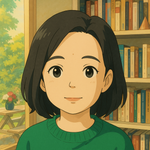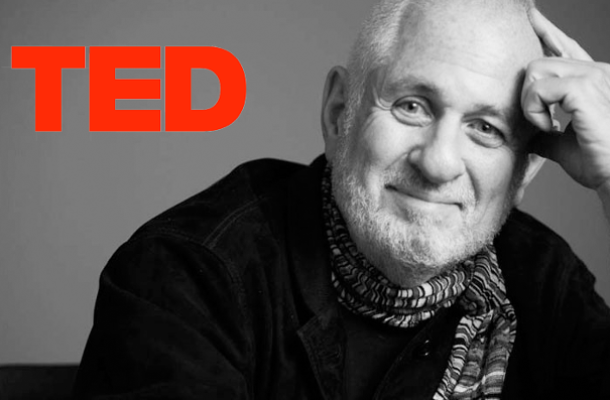In 1984, Richard Saul Wurman invented TED as a “personal journey to observe a convergence of three areas of focus in our society” :
- Technology
- Entertainment, and
- Design
30 years after TED’s inception, the journey continued.
In September, 2012 in Redlands, Calif., Wurman launched The WWW Conference.
I interviewed Wurman before the launch of the WWW conference.
MX: Maggie Xiao
RSW: Richard Saul Wurman
MX: You once said, "I just want to do a damn good conference." You didn't create a conference hoping it would change the world (although TED apparently did). So, what should we aim for when we create something? Should we just follow the flow of our thoughts and see what happens?
RSW: Well, there is a word, and I do not know how it’s translated into Chinese. But there is a word that is being used by many corporations and governments in particular in the last five years, as the word will allow them to be competitive and to move forward in the 21st century. And that’s the word “innovation” — How do we get innovation?
The word is used so much that it is getting tired already, yet people don’t quite know what it is. It’s become the magic word. We need to have innovation: new inventions, new ways of looking at things. I’m all for that, but when you use words too broadly, they get to have less distinct meanings, they become vague.
So, what I’ve been thinking about lately is a new phrase, which is “access to inspiration,” which is how to allow people in your corporation, people in your companies, people in your country, politicians in their various agencies … how to give the people who do the work permission, to provide a pass or map, which helps them have access to people and ideas that inspire them to be more of themselves.
This permission giving — and I don’t mean revolutionary permission giving –but permission giving that allows them to think up things without carrying the baggage of “before.”
Much as WWW Conference is trying to unload the baggage that even I created, I am giving myself permission to say all the things that I thought of.
I can shed and begin again to see what, in the quietness of myself, inspires me and makes me feel calm, what is clear to me. I can allow myself to trust my own understanding and to trust my lack of understanding as a way to start off on a slightly new path.
Doing that as an exercise — not just embracing the patterns of before –allows certain numbers of creative people to have access to this new land, this new land of inspiration, to create some new ideas, to find new patterns. Basically, it’s an embrace of cartography; it’s an embrace of creating new maps to connect different things, to find new patterns.
So, to build a new city — which China is, of course, very interested in, the growth of cities — and to just try to make a better version of what they have now would not be the correct path. To take a company (for example), just polish the silver, just make it sparkle more, is not the correct path. To take a conference or a car or an invention (for example), just shine it up, or to take a beautiful flower and put gold on it, is not enough.
It’s not enough in this moment in fast-moving history to make just a better version of what has happened before. Eventually, you will hit a wall, and I worry about America. I worry about China. I worry about certain countries and companies that I see in the near future –not tomorrow, but the near future –just doing a better version of something or more of something or bigger of something. They’re going to hit a wall because I thinkthey have to go back and give themselves permission to find new patterns.
They can continue on doing what they’re doing; this is usual. I’m not saying stop in their tracks. I’m not saying, as I just said to you earlier in this conversation, that TED will not be great, and it will go on for years. At the same time, in a parallel way, you have to go back and find new beginnings, to find new patterns for the future.
There are too many ways, new ways… (new) patterns that are coming up. I’m using the word, “pattern,” too much, but there are… too many epiphanies about the connective tissues of our society, connective tissue in communications and in… new devices, new programs for making these maps of understanding, this access to inspiration …
There are too many new ones that are going to change the future, and they’re just not going to be as a result of keeping the dial going bigger and bigger from the past.
It’s going to work, what China is doing, what America is doing, what other places are doing now, of just trying to make bigger, better, faster, prettier, more gold, more sparkle from the past.
It’s going to work for a while, so it’s going to fool people, lull people into thinking that it can go on forever. But nothing goes on forever, and they’re gonna have to go backwards and find some new beginnings to branch out from, because there are too many new things in the pot.
So many of our premises from the past are being challenged … a lot of it connected with communication — of the spreading of ideas and the spreading of ideas connecting ideas — and you can’t keep the ideas in a bottle once the cork is out. That’s it.
MX: Actually, you just answered my next question, which is when a map is undefined, how should people follow? Because the Chinese, for example, are stereotyped as being very good followers, but I guess you have already given me answers to that question. So I’m going to move to the next question.
MX: I noticed you have very special ways of writing and speaking, like you just did. Do you read and write poems? Do you think poems are very important to our modern life in the future?
RSW: Oh. Well, …. You have that book I gave to you, 33.
MX: yes
RSW: (and) you’ve seen the description of (the) WWW (conference)?
MX: yes
RSW: Neither of those are written. They are transcribed from my conversation.
I believe that one of the greatest inventions of all time, human inventions, and in fact it’s the most human thing we do. The most human thing we do is not, building cars or, making clothes or, anything else. The most human thing we do is conversing with each other,..we talk to each other, we have conversations with each other.
Those conversations between people are the essence of new ideas. It’s Steve Jobs and Wozniak inventing the first Macintosh. It’s Watson and Crick discovering DNA. It’s the whole gang of people with Einstein , Finen and all those people inventing a common energy and breaking the atom. It’s two people, three people, talking and generating back and forth in a conversation, flowering, the seeding of an idea. …..
The tone that you talk about is trying to do a tone where people hear what you’ve written. I think that breaks through much of the wall that we have between reading and understanding. Hearing and understanding.
If you hear in a conversational human way, it’s an embrace of humanity. When you’re lectured to or you’re told you have to do this, you have to do that, it doesn’t quite go in and I’m all about understanding.
Understanding is really a warm word and it can be data, it can be information, it can be questions, but what it all leads to is understanding.
I’ve also thought that there’s two roots of two really important English words and maybe this won’t work in Chinese (so you have to struggle with it). But we have a word ‘information’, information age, everything is information and more than half of that word is ‘inform’ and if the stuff in front of you doesn’t inform you, doesn’t really go in, I don’t think it should be labeled as ‘information’, it should be labeled as data, d-a-t-a.
Also a fundamental part of our understanding comes from trying personally to find out something and we have the word ‘question’ but more than half of that word, is the word ‘quest’ and quest is a personal thing, a personal quest to finding out how to, how to be informed and how to understand.
So the root of two of the most common English words, inform, quest, have become more a part of my personal vocabulary.
MX: Great

